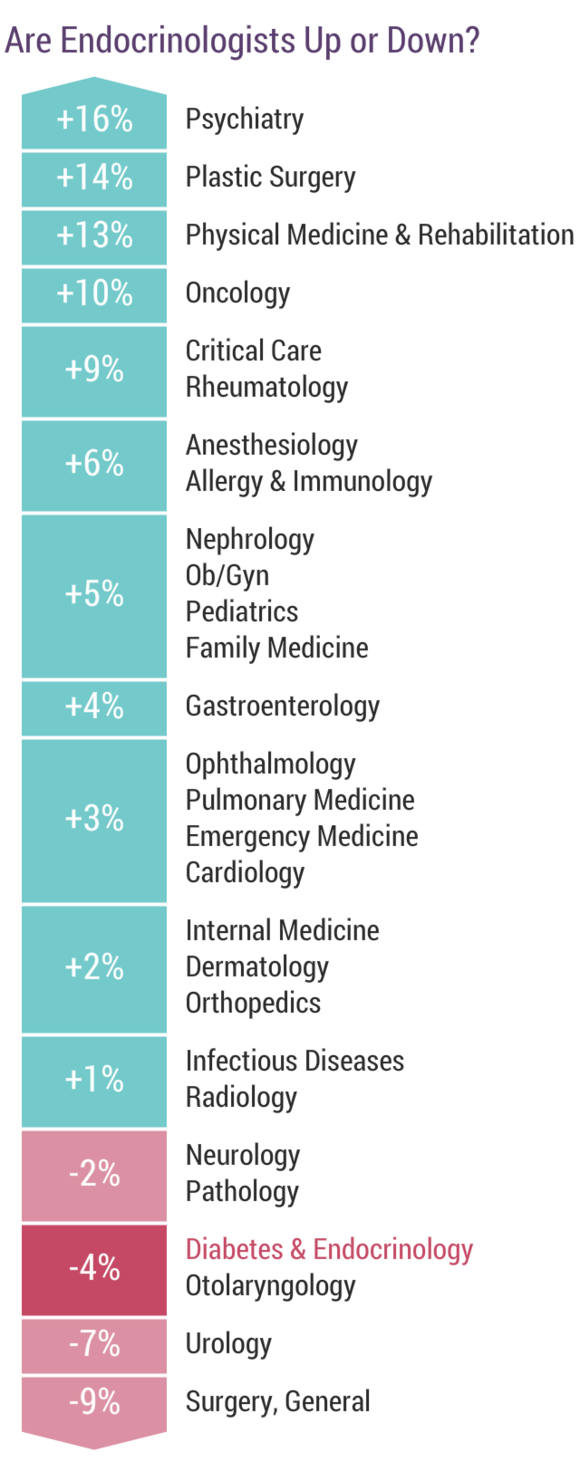Endocrinologist: Comprehending the Hormone Specialists
Wiki Article
The Science Behind Hormonal Agent Law: Insights From an Endocrinologist
The Science Behind Hormonal Agent Guideline: Insights From an Endocrinologist provides an extensive exploration of the detailed procedures included in hormone law. Whether you are a clinical professional looking for a much deeper understanding of endocrine function or an individual interested in learning concerning the scientific research behind hormonal agent policy, this book is an important resource.Hormones and Their Features
Hormones play vital duties in the policy and coordination of various physical processes within the body. These chemical carriers are produced by endocrine glands and are launched into the blood stream, where they take a trip to target cells or organs to apply their impacts. The functions of hormones vary and include almost every element of human physiology.One of the main functions of hormonal agents is to maintain homeostasis, which is the steady internal atmosphere necessary for the body to work optimally. As an example, insulin, a hormone created by the pancreatic, controls blood sugar levels by promoting the uptake and storage space of glucose in cells. Another hormone, cortisol, aids the body respond to stress and anxiety by enhancing blood sugar level levels and reducing the body immune system.
Hormones additionally play essential duties in growth and growth. Development hormone, generated by the pituitary gland, stimulates the growth of tissues and bones, while thyroid hormones regulate metabolism and influence the growth of the nerves - Endocrinologist in cedar park. Additionally, reproductive hormonal agents, such as estrogen and testosterone, are accountable for the growth and maintenance of additional sex-related characteristics and the guideline of the menstruation
The Endocrine System: An Introduction
Playing a crucial role in the policy and sychronisation of physiological processes, the endocrine system is a complicated network of glands that create and launch hormonal agents right into the blood stream. These glands, including the hypothalamus, pituitary gland, thyroid gland, adrenal glands, pancreas, ovaries, and testes, secrete hormones that act as chemical carriers, affecting numerous physical functions. The endocrine system works in conjunction with the nerve system to control and maintain homeostasis, making certain that the body's inner atmosphere stays steady.It generates hormonal agents that hinder the launch or boost of hormonal agents from the pituitary gland, which in turn manages the task of various other endocrine glands. The thyroid gland, located in the neck, generates hormones that manage metabolic rate and energy equilibrium.

Law of Hormonal Agent Production
The regulation of hormonal agent production involves an intricate interaction between various glands and responses systems within the endocrine system. Hormones are chemical messengers that play an essential duty in maintaining homeostasis and collaborating various physical processes in the body. The manufacturing of hormones is snugly managed to ensure the appropriate functioning of the endocrine system.The hypothalamus, situated in the brain, go now offers as a key regulatory authority of hormone manufacturing. It releases hormonal agents that stimulate or prevent the manufacturing of hormonal agents by the pituitary gland, which is frequently described as the "master gland" of the endocrine system. The pituitary gland, in turn, creates hormonal agents that act on numerous target glands throughout the body, stimulating them to create and launch particular hormonal agents.
Comments devices also play an important function in hormonal agent law. When hormone levels rise above or fall below the ideal variety, the body activates devices to either decrease or increase hormone production, specifically, to recover equilibrium.
Feedback Loops in Hormone Regulation
Feedback loops play an essential duty in the law of hormonal agent production. These loops involve a collection of communications between the endocrine glands, hormones, and target body organs to preserve homeostasis in the body. There are two types of responses loopholes: adverse feedback and favorable comments.Negative feedback is one of the most typical sort of feedback loophole in hormone regulation. It functions by noticing the levels of a hormonal agent in the blood and adjusting hormone production as necessary. When hormonal agent levels climb over a specific threshold, the hypothalamus in the mind indicates the pituitary gland to decrease hormonal agent manufacturing. This, consequently, reduces the stimulation of the target body organ, causing a reduction in hormone secretion. Alternatively, when hormone degrees go down listed below the limit, the hypothalamus promotes the pituitary gland to enhance hormone manufacturing, bring back balance.
Positive responses loops, on the various other hand, enhance hormone manufacturing. This happens when a hormonal agent promotes the release of even more of the same hormonal agent, resulting in a rapid rise in its levels. Nevertheless, positive comments loopholes are less typical in hormonal agent regulation and are normally involved in particular physiological processes, such as childbirth and lactation.
Elements Affecting Hormonal Agent Equilibrium
Factors influencing hormone balance include nutritional selections, lifestyle practices, and ecological direct exposures. These factors can have a considerable effect on the fragile balance of hormonal agents in the body, influencing numerous physical procedures and total health.Dietary choices play an important function in hormonal agent guideline. Taking in a well balanced diet regimen that consists of a selection of nutrients is crucial for keeping hormonal agent balance. Certain nutrients, such as omega-3 fats, vitamins, and minerals, are specifically important for optimum hormonal agent feature. On the other hand, a diet plan high in refined foods, refined sugars, and undesirable fats can interrupt hormone Check Out Your URL levels and lead to inequalities.
Ample sleep is critical for hormonal agent manufacturing and policy, as interfered with sleep patterns can lead to inequalities. Furthermore, chronic anxiety can dysregulate the hypothalamic-pituitary-adrenal (HPA) axis, an essential gamer in hormone policy, leading to a cascade of hormone inequalities.

Conclusion
In conclusion, comprehending the scientific research behind hormone guideline is essential for maintaining general wellness and well-being. Hormones play important duties in various bodily functions, and their production is managed by intricate feedback loops. Elements such as anxiety, diet regimen, and lifestyle selections can affect hormonal agent equilibrium. By researching and understanding these devices, we can much better comprehend and handle hormone-related problems, eventually resulting in enhanced health and wellness results.The Science Behind Hormone Policy: Insights From an Endocrinologist offers a thorough exploration of the intricate procedures involved in hormonal agent regulation. It generates hormones that boost or inhibit the launch of hormonal agents from the pituitary gland, which in turn controls the activity of view it various other endocrine glands. It releases hormonal agents that stimulate or prevent the manufacturing of hormonal agents by the pituitary gland, which is frequently referred to as the "master gland" of the endocrine system. The pituitary gland, in turn, creates hormonal agents that act on different target glands throughout the body, boosting them to produce and launch details hormones.
When hormonal agent degrees rise over a particular threshold, the hypothalamus in the mind signifies the pituitary gland to decrease hormone manufacturing. (endocrinologist in liberty hill)
Report this wiki page